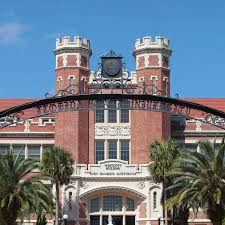Speaker
Description
The $X_0(2900)$ was observed by the LHCb and has been largely accepted as a $D^* \bar K^*$ molecule. Yet, the molecular picture gives rise to three spin states, with $J^P=0^+,1^+,2^+$, and only the $0^+$ state has been so far observed.
We present three methods to determine these extra states.
1) The $\bar B^0 \to D^{∗+} ̄\bar D^{*0} K^−$, looking at the $D^{*+} K^-$ spectrum.
2) The $\bar B^0 \to K^0 D^{*+} K^−$, reaction, also looking into the $D^{*+} K^-$ spectrum
These two methods are meant to detect the $1^+$ state. The $2^+$ state is suggested to be formed in the $B^+ \to D^{+} D^{-} K^{+} $ reaction, constructing different momenta of the $D^{-} K^{+}$ mass distributions.
Rates for the signal and background in these reactions have been calculated and found to be at reach in LHCb and other facilities.
Refs. : Phys.Lett.B 832 (2022) 137219 ; Phys.Rev.D 105 (2022) 9, 096022 ; 2207.02577
| speaker affiliation | IFIC , CSIC and University of Valencia, Spain |
|---|

